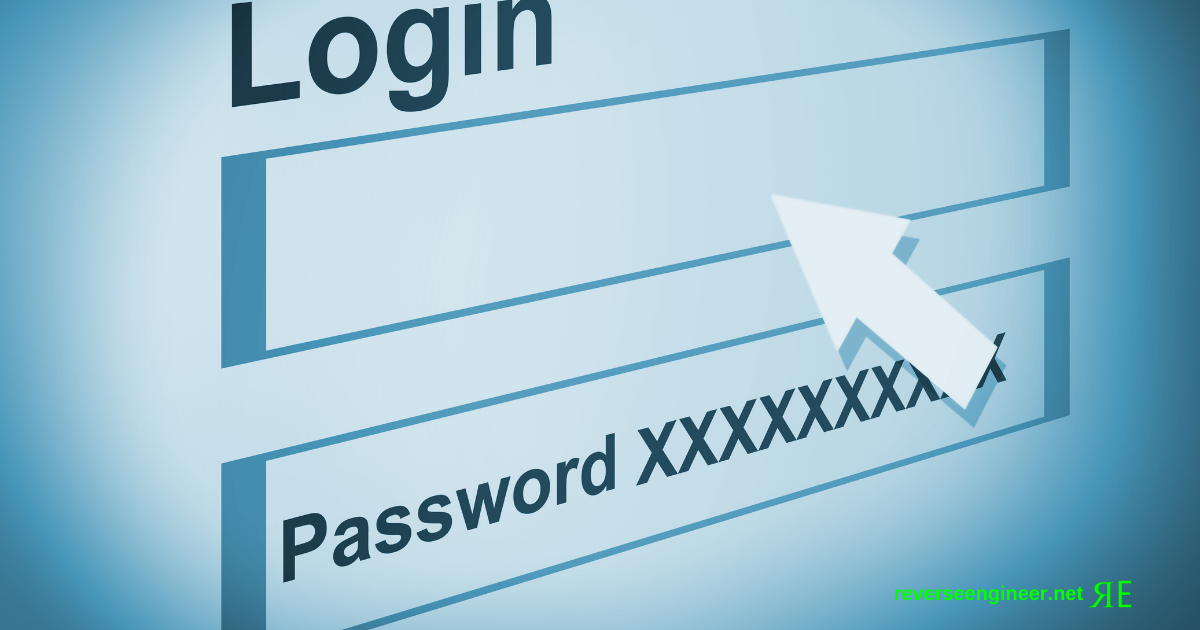
What is Account Hacking and How to Do It
Account hacking refers to unauthorized access and control of a user’s online account, in this case a Facebook account. This illegal activity can occur in a variety of ways, usually by exploiting vulnerabilities in both technology and the user’s own security habits. Understanding these methods is crucial for users to prevent potential breaches and understand when recovery actions are necessary.
One common scenario for account hacking involves phishing attacks, which trick users into providing their login credentials. These phishing attempts usually come in the form of deceptive emails or messages that look like legitimate communications from Facebook, encouraging users to click on malicious links. This is usually done by hackers using PHP mailer bases, and in most cases, they are tricked into believing that the incoming email is actually from the Facebook team. Users click on the links in these fake emails and after entering their information on the fake Facebook homepage that opens, the hackers gain instant access to their accounts.
Another common method is credential stuffing, where hackers use stolen login credentials from one site to access accounts on other sites, including Facebook. Since many users reuse passwords across platforms, a breach on one service can lead to unauthorized access on others. That’s why our Cybersecurity experts recommend: “Set a unique password for each platform.”
Additionally, social engineering tactics are often used by hackers, where they trick individuals into revealing sensitive information under the guise of legitimate requests.
The consequences of a Facebook account being hacked can be very serious. Not only can it compromise personal privacy, it can also lead to identity theft, financial loss, and damage to an individual’s online reputation. Once hackers have control, they can use the account to post inappropriate content, spam their friends, or even target people on their friends list for further attacks.
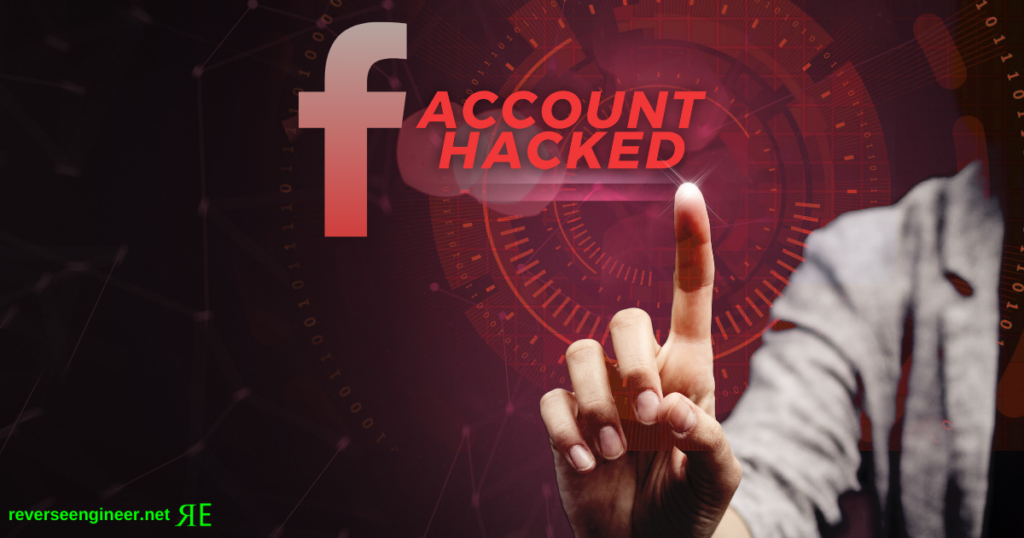
How to Tell If Your Facebook Account Has Been Hacked
Recognizing the signs that a Facebook account has been compromised is important for any user who wants to protect their privacy and security online. One of the most common indicators that your account may have been hacked is unusual account activity. This can appear in the form of unexplained changes, such as the addition of unknown users to your friends list or notifications about posts or comments you don’t recognize. If you discover notifications of password changes or login attempts from unknown devices or locations, these are critical warnings that your account may have been compromised.
Another key sign of a hacked Facebook account is that your personal information has been changed. If you notice that your email address, phone number, or profile information has been changed without your knowledge, or if you receive a REAL notification or email from Facebook about this, it’s important to investigate further. Cybercriminals often update/change this information to lock you out of your account and make it easier for themselves to access it. Regularly checking your account settings for inconsistencies can help you catch these changes early.
Also, if you see messages sent from your account to your friends that you didn’t write, this is a sign of unauthorized access. These types of messages are usually spam or phishing attempts, designed to trick your contacts into providing personal information or clicking on malicious links. Paying attention to your messaging activity can give you an idea of any illegal activity taking place on your account. In some cases, you may also receive alerts from friends who notice unusual communications, which can serve as an additional warning of the problem.
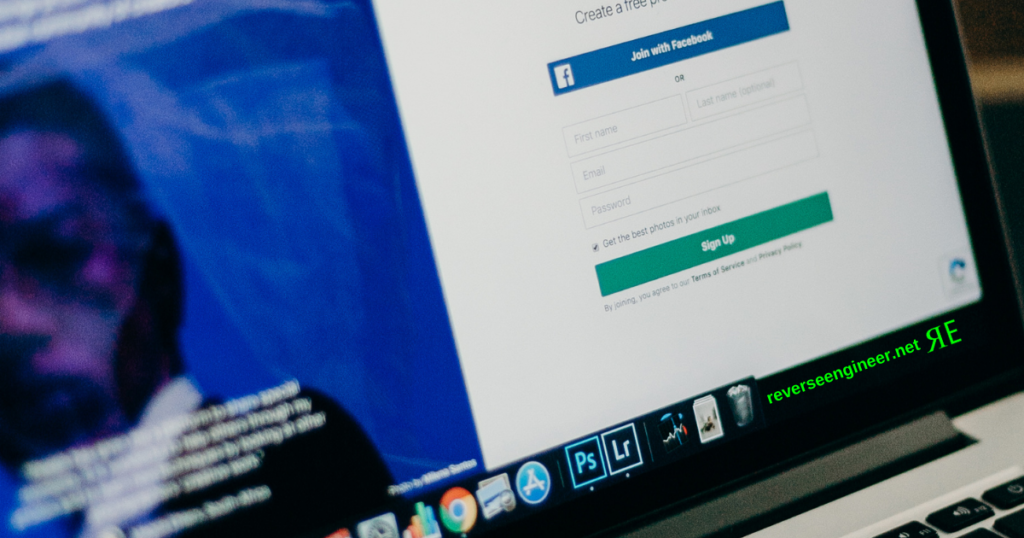
In short, being aware of the signs that your Facebook account has been hacked (from unexpected activity to changes in personal information to suspicious messaging) requires taking immediate action. Taking these warning signs seriously can significantly increase your ability to recover your account and protect your personal information.
If you observe one or more of the above on your account, please Contact Us or a cybersecurity professional so that we can take immediate action to restore the security of your accounts before they become too damaged.
If you think your Facebook account has been manipulated or hacked by unauthorized access, you can contact us via our CONTACT page or TELEGRAM address. We trust in our speed of response and trust our expert team in this type of intervention.
Facebook Account Has Been Hacked, What Do I Do Now?

Attempting to Reset Your Password
The first crucial step in recovering a hacked Facebook account is to attempt resetting your password. To initiate this process, navigate to the Facebook login page. If you cannot recall your password or suspect that it has been compromised, locate the “Forgot Password?” link beneath the password entry field. Clicking this link will direct you to a new screen where you can enter the email address or phone number associated with your account.
Once you submit the relevant information, Facebook will search for your account and provide options for password recovery. Typically, you will receive a verification code sent to your registered email or phone number. If you have access to either of these recovery options, follow the prompts to retrieve the code, which you will need to input to proceed with the password reset.
However, if you no longer have access to your recovery email or phone number, the process becomes slightly more complex. In such situations, click on the “No longer have access to these?” option after entering your email or phone number. Facebook will guide you through additional verification steps that may involve answering security questions or identifying friends in tagged photos. These measures are in place to ensure the rightful owner of the account is recovering the password.
If you successfully reset your password, it is advisable to create a strong and unique password that combines uppercase and lowercase letters, numbers, and special characters. Additionally, consider enabling two-factor authentication to add an extra layer of security to your Facebook account. Taking these proactive measures can significantly reduce the likelihood of future unauthorized access.
However, doing this may be a temporary and temporary solution. Because the real important issue here is, how did the cybercriminal take over your account? More importantly, does this method still work? The answers to these will tell you whether you will experience this problem again in the future. If the security device you are using (Computer, Phone) has been compromised, you may even be monitored instantly. All your keyboard strokes may be recorded with a Keylogger (Keyboard listening system) and sent to the cybercriminal. All of these are very important and sensitive information that we have experienced while ensuring the account security of our previous customers. If your doubts persist and you want to end your doubts, our Digital Forensic Evidence Experts are ready to check the security of your devices.
In other words, the fact that you have recovered your account the first time does not mean that you have taken precautions that will protect you in the future. It is very important to take precautions to prevent this breach from happening again, to determine the possible leak area and to completely eliminate it. If you want us to ensure the security of your devices and investigate the reason for your account being hacked, I recommend that you contact us via our contact form on our Contact Page or other communication channels.
Our team, after receiving briefings from you, will quickly determine the appropriate ways and methods for incident response, and then install the necessary security mechanisms in your system and identify the affected leak areas, eliminate them and give you recommendations. In this way, you will completely prevent such incidents from recurring.
Regaining Access Facebook Account Without Email or Phone Number
When you’re faced with the unfortunate event that your Facebook account has been hacked, the most critical step is to regain access, especially if you’ve lost your associated email address or phone number. Facebook offers alternative recovery methods that can help users regain control over their accounts. One effective approach is to use the security questions you may have previously set up. If you configured these before you were locked out, these questions can be a simple and secure way to verify your identity.
Another option offered by Facebook is the ability to identify friends in tagged photos. This method requires you to recognize the people in the images your account is associated with, thus helping you verify your identity to the platform. Making sure you can correctly identify these friends is crucial, as this method relies heavily on your familiarity with your network connections. You can also check out Facebook’s “Find Friends” feature, where it displays friends who are likely to be part of your account’s social circle.
If these alternative methods don’t work, consider using trusted contacts. If you have set up this feature before, it allows you to choose your trusted friends to help you recover your Facebook account. You need to follow certain instructions to send recovery codes to your trusted contacts so that they can forward them back to you for account access. It is recommended that you act quickly when contacting these friends and ensure a smoother recovery process.
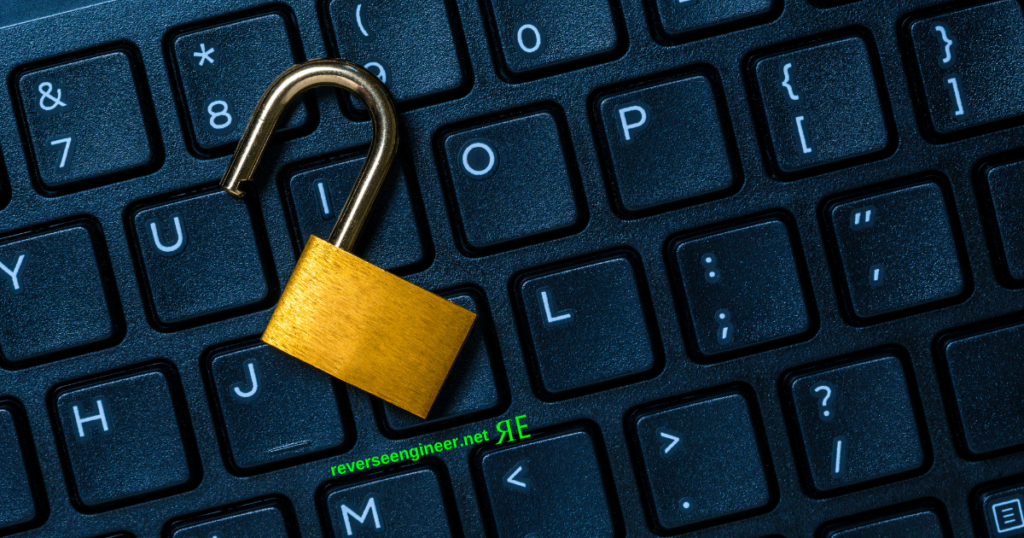
There are various ways to recover your Facebook profile and there are different recovery options that do not depend on traditional methods such as email or phone number verification only. Choosing the right path and method and following the right roadmap is very important. For this reason, our Recovery Team, who are experts in the field, is always ready to help you.
Contact Facebook Support
Once you have determined that your Facebook account has been hacked and have followed the initial recovery steps, the next important step is to contact Facebook Support. This process is vital to address issues beyond what you can fix on your own. To effectively report your hacked account, start by going to the official Facebook Help Center. Here, you will find resources specifically designed to report compromised accounts where you can begin the recovery process.
To optimize your interaction with Facebook Support, it is important to gather relevant information in advance. You may be required to provide details such as your account name, the email address associated with the account, and relevant identification documents that verify your identity. This will help speed up the process and help Facebook verify that you are the true owner of the account in question. Apart from this, our team will back up the hack with concrete evidence (Digital forensic evidence expertise) before contacting the Facebook team. Our certified experts will then forward these vulnerabilities to the Meta Trust Center with a signature and initiate the recovery process.
Please note that responses may take some time depending on the volume of notifications Facebook receives. During this waiting period, it is important not to create a new account as this may violate Facebook’s policies and hinder your recovery efforts. With patience and the correct information in hand, you will increase your chances of successfully recovering your hacked account through Facebook Support.
Preventing Future Hackings
Securing your Facebook account against future hacking attempts is crucial in safeguarding your personal information and maintaining your online presence. One of the foundational steps in this process involves creating a strong and unique password. A strong password should be at least twelve characters long and include a mix of uppercase and lowercase letters, numbers, and special symbols. Avoid using easily guessable information such as birthdays or names of loved ones. Instead, consider utilizing a password manager, which can help generate and store strong passwords for various accounts, including your Facebook profile.
In addition to having a robust password, enabling two-factor authentication (2FA) is an essential security measure. This feature requires not only your password but also a verification code sent to your mobile device or email whenever a login attempt occurs. By implementing 2FA, you add an extra layer of protection to your Facebook account, significantly diminishing the chances of unauthorized access, even if someone manages to acquire your password.
Another effective measure for preventing future hacks involves educating yourself on how to recognize phishing attempts. These attacks often come in the form of emails or messages that appear legitimate but are designed to trick you into providing your login credentials. Always scrutinize links and email addresses before clicking on them, especially if the content requests personal information. If you ever receive a suspicious message claiming to be from Facebook, it is advisable to navigate to the platform directly through the official website or application instead of clicking on suspicious links.
By adhering to these preventive strategies—creating strong passwords, enabling two-factor authentication, and practicing caution against phishing attempts—you can significantly reduce the risk of your Facebook account being compromised in the future.
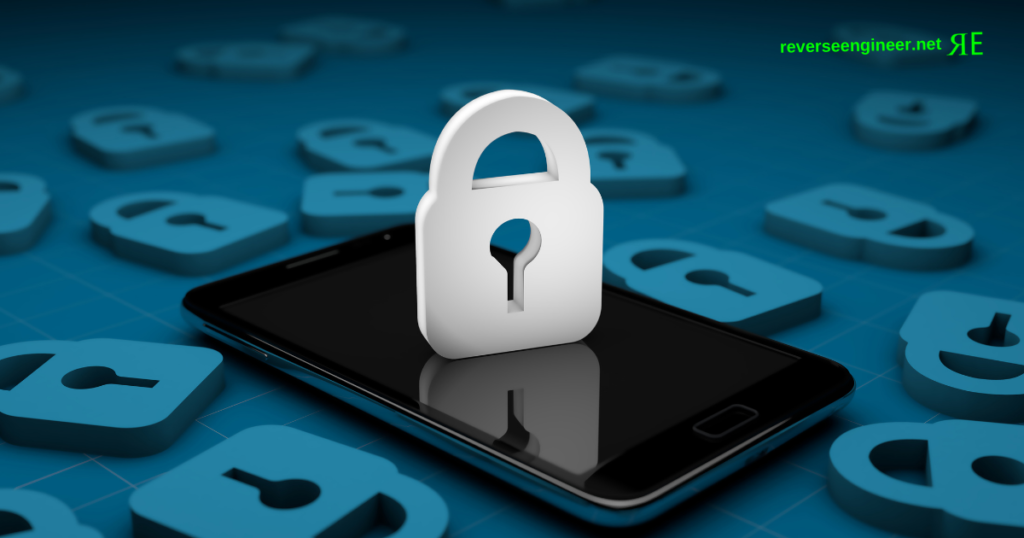
When to Seek Professional Help
Recovering a hacked Facebook account can often involve overcoming a variety of challenges, technical knowledge, and a proactive approach to security. While many users can use standard recovery methods, such as utilizing the built-in recovery options provided by Facebook, there are certain situations where it may be important to seek professional help. Understanding when to make this decision can save both time and the potential loss of valuable data.
If you are unable to regain access to your Facebook account after multiple recovery attempts, such as resetting your password, answering security questions, or using trusted contacts, this may be an indication that the situation requires expertise beyond personal efforts. We recommend that you contact us for professional help, especially if your account has been compromised to the point where security measures such as two-factor authentication have been disabled, or if you notice unusual activity.

Additionally, if sensitive information has been compromised or your account has been used for malicious purposes, the risks are significantly increased. In these scenarios, our skilled professionals or specialized services will help mitigate the potential damage and secure your digital asset. These services include our digital forensics experts, cybersecurity consultants, and account recovery experts. These professionals have the tools and knowledge to thoroughly assess the situation and implement advanced recovery techniques that may not be available to the average user.
Acting quickly to seek professional help will not only increase your chances of recovering your hacked Facebook account, but will also provide stronger security measures for the future. This proactive step can be invaluable in today’s rapidly evolving digital environment, where the consequences of an account breach can go far beyond just being an inconvenience.
The Role of ReverseEngineer.net in Account Recovery
In the complex landscape of digital identity security, the expertise of Reverse Engineers like the ReverseEngineer.net team plays a key role in helping individuals with Facebook account recovery. As cyber threats evolve, account recovery becomes increasingly difficult, making specialized support invaluable. The ReverseEngineer.net team has the technical know-how to navigate the complexities of Facebook’s security protocols and offers services specifically designed to meet the needs of users who may have fallen victim to hacking incidents.
The types of services offered by the ReverseEngineer.net team include account assessment, vulnerability analysis, and recovery strategies. They analyze compromised accounts to determine how the breach occurred and then guide individuals through the steps needed to secure their accounts. In cases where self-recovery methods fail, professional assistance from reverse engineering experts can significantly reduce downtime and help restore access to important social connections and information stored on Facebook.
Additionally, using Experts like the Engineers at ReverseEngineer.net not only increases the likelihood of a successful recovery, but also provides users with important information on how to prevent future breaches. This dual focus on recovery and education allows individuals to be better prepared to face potential threats in the future. Opting for professional services helps alleviate the stress associated with lost accounts and provides users with strategies designed to strengthen their digital presence.
This blog post has outlined the basic steps and precautions to take after illegal access to your account is discovered. It is crucial to act quickly; the sooner you report the situation to us, the better our chances of regaining control.
Regularly reviewing your account settings and logged-in devices can help you identify potential breaches early. It is important to remain vigilant and informed about the latest cybersecurity practices to mitigate risks.
Ultimately, emphasizing the need for a proactive approach to account security can help users navigate the digital space with confidence. Ultimately, protecting your Facebook account starts with awareness and swift action when faced with a potential threat.
Let's Work Together
Need Professional Assistance with Reverse Engineering or Cybersecurity Solutions? Our Team is Ready To Help You Tackle Complex Technical Challenges.